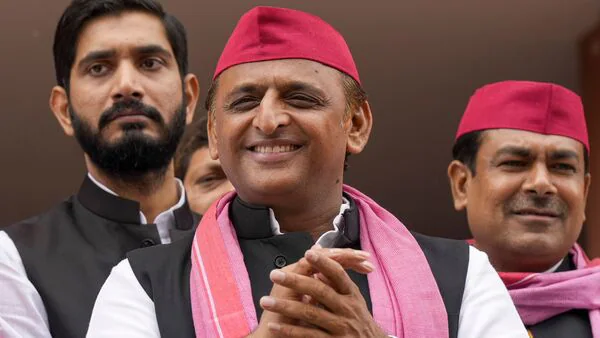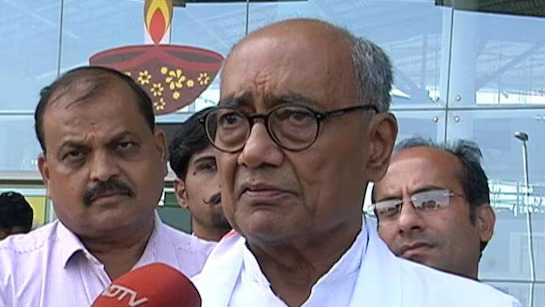Samajwadi Party
In a noteworthy shift within Indian politics, the Samajwadi Party (SP) has announced its decision to contest the upcoming Jammu and Kashmir (J-K) Assembly elections. This strategic move is further amplified by their extension of support to the existing alliance between the Congress and the National Conference (NC). This development is significant for several reasons, influencing the political landscape of J-K and potentially reshaping the dynamics of the regional elections.

Strategic Alliances and Political Calculations
The decision by the SP to enter the J-K Assembly elections underscores a broader strategy to broaden its influence beyond its traditional strongholds in Uttar Pradesh. By participating in J-K’s electoral contest, the SP is not only seeking to expand its political footprint but also to capitalize on the complex political environment of the region. The party’s choice to back the Congress-NC alliance suggests a strategic calculation aimed at maximizing electoral gains and increasing its relevance on a national level.
The Congress-NC alliance, which has been a crucial player in J-K’s political arena, represents a formidable force against the current ruling party, the Bharatiya Janata Party (BJP). The alliance has been formed with the intent of consolidating opposition votes and presenting a unified front in the face of BJP’s increasing influence in the region. The addition of SP’s support is expected to bolster this coalition, enhancing its ability to challenge the BJP’s dominance.
Implications for the Congress-NC Alliance
The Congress-NC alliance in J-K has historically been a complex and sometimes contentious partnership. Both parties have had their share of rivalries and differing agendas, yet their collaboration reflects a strategic move to counter the BJP’s aggressive political campaigns and policies. SP’s endorsement of this alliance signals a strengthening of this coalition, potentially improving its chances of securing a substantial share of the seats in the Assembly.
SP’s involvement could provide the alliance with additional resources, campaign infrastructure, and a broader voter base. The party’s experience and organizational strength, honed in Uttar Pradesh’s electoral battles, might offer valuable insights and support in J-K’s unique political landscape. Additionally, SP’s backing could help in mobilizing votes from different demographic segments, which is crucial in a region as diverse as J-K.
Potential Challenges and Opportunities
While the SP’s support for the Congress-NC alliance brings numerous advantages, it also presents several challenges. The primary challenge is ensuring cohesion within the alliance. The Congress and NC will need to effectively integrate SP’s contributions while maintaining their own electoral strategies and addressing intra-coalition differences. Coordination between the parties will be critical in presenting a unified message and in strategic campaigning.
Moreover, SP’s entry into J-K politics introduces new dynamics. The party’s ability to resonate with J-K’s voters and address local issues will be pivotal. The region’s political landscape is distinct, with its own set of challenges, including the special status of Jammu and Kashmir, regional aspirations, and security concerns. SP’s success will largely depend on its capacity to navigate these complexities and align its campaign with the regional electorate’s priorities.
Broader Political Implications
On a broader scale, SP’s move can be seen as part of a larger pattern of opposition parties seeking to forge alliances to counter the BJP’s influence. This trend reflects a strategic recalibration within Indian politics, where regional parties are increasingly seeking to collaborate across state boundaries to strengthen their positions in national and regional elections.
The SP’s participation in the J-K Assembly elections, coupled with its support for the Congress-NC alliance, could set a precedent for future political collaborations and coalition-building efforts across India. It highlights the evolving nature of Indian electoral politics, where strategic alliances and cross-regional partnerships are becoming increasingly important in shaping the outcomes of elections.
In conclusion, the Samajwadi Party’s decision to contest the J-K Assembly elections and support the Congress-NC alliance marks a significant development in Indian politics. It reflects both a strategic maneuver to expand its influence and a broader trend of opposition unity in the face of dominant political forces. The coming elections will likely be a critical test of this newly forged alliance’s ability to leverage its collective strength and address the complex political dynamics of Jammu and Kashmir.





